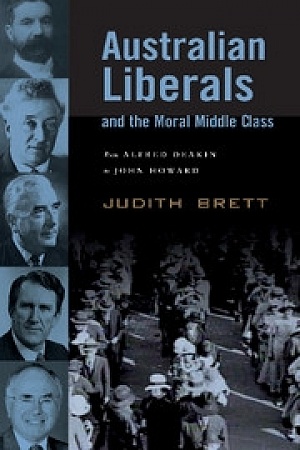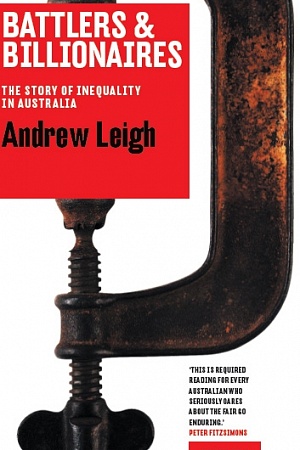John Howard: Prime Minister
Viking, $49.95 hb, 806pp
Good Guys and Bad Guys
This is a tale of good guys and bad guys. The bad guys (mostly called Whitlam, Hawke, or Keating) are zealous lackeys of two ogres called Centralised Wage Fixing and Political correctness. They are often helped by other guys (frequently called Peacock, Elliott, and Bjelke-Petersen) who pretend to be good but aren’t.
Well placed for their task, the authors avowedly enjoyed ‘immediate access’ to the head good guy as he struggled against overwhelming odds to become Prime Minister. Pru Goward, who wrote the first chapter, dealing with Howard’s life before entering parliament, had helped make a Liberal Party television history and is Executive Director of John Howard’s Office of the Status of Women. David Barnett has worked at Parliament House, Canberra, for the past quarter century and has known Howard since 1974.
Paying little attention to his private life, their book emphasises Howard’s main political preoccupation, namely economics, and particularly his development as an economic rationalist progressively striving for the adoption of financial deregulation in Australia.
Coherently (and chronologically) organised, it is packed with pertinent information about everything from Liberal Party political infighting to bottom-of-the-harbour tax scams. But most of it is already on the public record and the interpretation is not particularly insightful. Of the plethora of recent biographic of living Australian politicians, this is surely the most one-sided. One need not know much to distrust its contents; a reasonably intelligent Martian would regard such hagiography as implausible. John Howard’s few acknowledged mistakes are presented as errors of tactics rather than substance or blamed on someone else. When in 1988 he foolishly called for a reduction in Asian immigration, it was because the interviewer ‘had led him into making a comment which could be branded as “racist”’. His party’s economic failures are imputed to (for example) the overthrow of the Iranian Shah or bad advice from the tax office. His enemies are depicted as almost universally incompetent. What little credit is accorded to Labor is grudging. Paul Keating’s 1983 dollar float was ‘a bold stroke even if one made inevitable by … events’, while his reputation for economic sagacity ‘was built on the reforms he had adopted from Howard’.
Continue reading for only $10 per month. Subscribe and gain full access to Australian Book Review. Already a subscriber? Sign in. If you need assistance, feel free to contact us.










Leave a comment
If you are an ABR subscriber, you will need to sign in to post a comment.
If you have forgotten your sign in details, or if you receive an error message when trying to submit your comment, please email your comment (and the name of the article to which it relates) to ABR Comments. We will review your comment and, subject to approval, we will post it under your name.
Please note that all comments must be approved by ABR and comply with our Terms & Conditions.